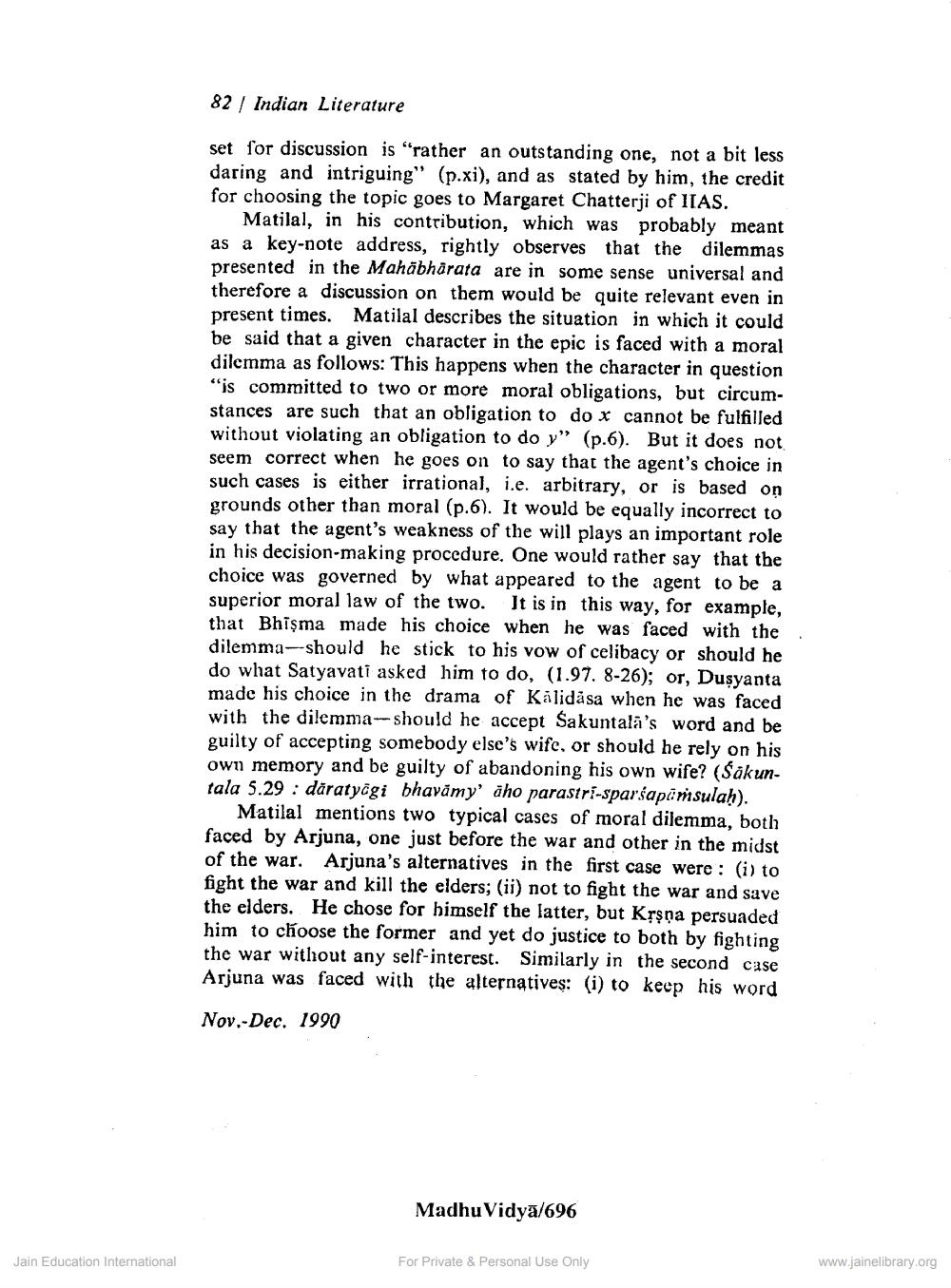________________
82 | Indian Literature
set for discussion is "rather an outstanding one, not a bit less daring and intriguing" (p.xi), and as stated by him, the credit for choosing the topic goes to Margaret Chatterji of IIAS.
Matilal, in his contribution, which was probably meant as a key-note address, rightly observes that the dilemmas presented in the Mahabharata are in some sense universal and therefore a discussion on them would be quite relevant even in present times. Matilal describes the situation in which it could be said that a given character in the epic is faced with a moral dilemma as follows: This happens when the character in question "is committed to two or more moral obligations, but circumstances are such that an obligation to do x cannot be fulfilled without violating an obligation to do y" (p.6). But it does not seem correct when he goes on to say that the agent's choice in such cases is either irrational, i.e. arbitrary, or is based on grounds other than moral (p.6). It would be equally incorrect to say that the agent's weakness of the will plays an important role in his decision-making procedure. One would rather say that the choice was governed by what appeared to the agent to be a superior moral law of the two. It is in this way, for example, that Bhisma made his choice when he was faced with the dilemma--should he stick to his vow of celibacy or should he do what Satyavati asked him to do, (1.97. 8-26); or, Dusyanta made his choice in the drama of Kalidasa when he was faced with the dilemma-should he accept Sakuntala's word and be guilty of accepting somebody else's wife, or should he rely on his own memory and be guilty of abandoning his own wife? (Sakuntala 5.29 : däratyāgi bhavamy' äho parastri-sparsapusulah).
Matilal mentions two typical cases of moral dilemma, both faced by Arjuna, one just before the war and other in the midst of the war. Arjuna's alternatives in the first case were : (i) to fight the war and kill the elders; (ii) not to fight the war and save the elders. He chose for himself the latter, but Krsna persuaded him to choose the former and yet do justice to both by fighting the war without any self-interest. Similarly in the second case Arjuna was faced with the alternatives: (i) to keep his word
Nov.-Dec. 1990
Madhu Vidyā/696
Jain Education International
www.jainelibrary.org
For Private & Personal Use Only




